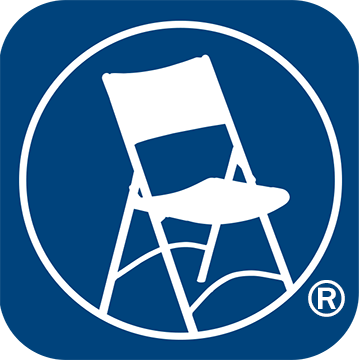About Recovery Project Resources
Inspiration for this website . . .
"As of recent, in early 2021 I relocated to Charlotte, NC from South Florida to continue my career and recovery. The inspiration for this site was born with a wise friend in my current Sangha in Charlotte. My wise friend suggested to potentially create a library or database of books that I had read to help others. After giving the suggestion some thought over several months, I decided to take the idea a bit bigger. This website incorporates my experiences in recovery with AA, NA, SMART Recovery, Recovery Dharma and Al-Anon/Atateen." "Know I can't do this alone" - I welcome contributors to recommend reference material for this site that will be reviewed and then published if topic appropriate. Please feel free to contact us to participate and become a contributor or even an administrator of Recovery Project Resources.
Who is Scott Himmelrich . . .
He's a native Floridian from Fort Lauderdale and was raised in Nassau, Bahamas and lived there for almost ten years. While living in the Bahamas he quickly became a boating and fishing enthusiast and to this day fish off the Lauderdale Coast and in the Florida Keys as much as his schedule permits. He moved to New York City at age eighteen to begin his career in information technology and became one of the first certified network engineers for Novell. While in NYC he worked with many prominent firms and continues a successful career path which eventually put him in the project management office world of project management and business analystics. His free time in NYC was spent nurturing his passion for music. His passion became so great that he started production work in the pop, house, and new age genres. There were several opportunities to turn his passion for music into a full-time job however, he liked the salaries his IT work provided, so he continues music as a hobby to this day. You can learn more about Scott at www.scotthimmelrich.com and read his published article about his encounter with the "911 Event" a block away from the first falling tower.
About his recovery...
Scott has been in recovery for over seven years.
He was encouraged by his therapist to join the Alcoholics Anonymous program ,know as AA, through his first attempt to become sober in the Spring of 2010. “I remember being told to take life one day at a time”, which was his first remembrance that stuck in his mind.
Several years later as his disease progressed, he reentered the rooms of AA again, which is a twelve-step program, with a more serious attitude towards recovery. Over the last seven plus years he’s come to better understand his dichotomy in believing in a higher power and understanding his path in sobriety taking on an alternative approach to recovery.
Scott now attends many fellowships including the a twelve-step program, cognitive behavior program and an inspired Buddhist program.
During his journey he’s seen how a hybrid model of recovery may help others. The materials in this website will have some twelve-step program material references, as well as additional information that is not approved by certain fellowships. Individuals that would like to contact us are welcome to do so if the materials they have used are not presented on this website.
Our Services

WORKING WITH US
CONTRIBUTORS, ADMINISTRATORS, REHAB LOGISTICS AUTOMATION
Programs, Practices and Support
- All
- Alcoholic Anonymous
- Narcotics Anonymous
- SMART Recovery
- Recovery Dharma
- Refuge Recovery
- 12 Step
- Buddhist Inspired
- Annie Grace/The Naked Mind
- LifeRing
- Celebrate Recovery
- Behavioral Therapy
- Friends and Familes of Alcoholics
- AA Agnostica
- Yoga 12 Step
- Mindfulness in Recovery
Meetings
Buddhist Practices
Non 12 step Programs

Recovery Dharma - www.recoverydharma.org
Recovery Dharma Meeting Search
"Recovery Dharma Downloadable Book ebook"

Refuge Recovery World Services - www.recoverydharma.org
Refuge Recovery Meeting Online
Refuge Recovery Meeting In-Person
"Refuge Recovery Pamphlets & Worksheets"
"About Noah Levine the Author of Refuge Recovery"
Behavioral / Support
CogNative Therapy/Support Programs

SMART Recovery - www.smartrecovery.org
SMART Recovery Meeting Search
"SMART Recovery Full Meeting List Download"

Al-Anon Family Groups - www.al-anon.org
Al-Anon How Can Al-anon and Alateen Help
Al-Anon / Alateen Meetings
"Al-Anon / Alateen Products"

This Naked Mind
Programs

LifeRing
Meetings
Programs

Mindfullness in Recovery
Meetings
Resources
Welcome to eRecovery Project Resources
ContactContact us
Recovery groups are voluntary associations of people who share a common desire to overcome their addiction(s). Different groups use different methods, ranging from completely secular to explicitly spiritual. Some programs may advocate a reduction in the use of illegal drugs rather than outright abstention, although this is for other programs typically not a sustainable treatment plan in the long term. One survey of members who found active involvement in any addiction recovery group correlates with higher chances of maintaining sobriety. The survey found group participation increased when the individual members' beliefs matched those of their primary support group (often people will be members of multiple addiction recovery groups). Analysis of the survey results found a significant positive correlation between the religiosity of members and their participation in twelve-step programs (self-named "spiritual" addiction recovery programs) and to a lesser level in non-religious SMART Recovery groups, the correlation factor being three times smaller for SMART Recovery than for the twelve-step addiction recovery groups. Religiosity was inversely related to participation in Secular Organizations for Sobriety.
A survey of a cross-sectional sample of clinicians working in outpatient facilities (selected from the SAMHSA On-line Treatment Facility Locator) found that clinicians only referring clients to twelve-step groups were more likely than those referring their clients to twelve-step groups and "twelve-step alternatives" to believe less strongly in the effectiveness of Cognitive Behavioral and psychodynamic-oriented therapy, and were likely to be unfamiliar with twelve-step alternatives. A logistic regression of clinician's knowledge and awareness of Cognitive Behavioral Therapy effectiveness and preference for the twelve-step model was correlated with referring exclusively to twelve-step groups. Ref: Wikipedia 8/2021










